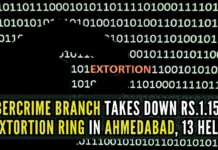
Many eyebrows are raised over Gautam Adani-led Adani Power’s decision to go ahead with the delisting of its shares from stock exchanges. This decision is going to be a huge loss to public investors who constitute around 25% of the total number of shares in Adani Power, which started at Rs.100 in 2009 and reached Rs.137 in 2010 and is currently trading around just Rs.38. Why was this decision taken by the politically connected Gautam Adani-led group? A meeting was held on June 3 to engage Merchant Bankers to look into the delisting procedures.
What are the reasons behind this delisting? Many corporate experts told PGurus that the company promoters would like to acquire the publicly held 25% shares at a very cheap price. As a regulator, the Stock Exchange Board of India (SEBI) has to protect the common investors, they say. Another reason is that they smell a scam. Adani Group was involved in the Loan Against Shares (LAS) scheme and got huge amounts of loans from Public Sector Banks. It is reported in Corporate circles that more than Rs.41,000 crores were obtained by pledging shares and Adani Group’s total loans has reached around Rs. One Lakh crore and is in the doubtful or possibly NPA category.
So as the current share price is around Rs.38, this Loan Against Shares is not attractive and Adani Group might be planning to delist and get out of the control of Stock Exchanges and wanted to hype its share value. Though hyping share value after delisting can make them eligible for taking further loans, say Corporate experts. Here the billion-dollar question is what is in the mind of Gautam Adani during the Covid-19 hit economy. Will he get clearance from SEBI?
“Adani Group had come out with the IPO of Adani Power in August 2009 at the issue price of Rs.100 per share. It is shocking that the promoters are now (in June 2020 in the midst of the COVID-19 pandemic) proposing delisting of the shares of Adani Power at a time when the share price is languishing at around Rs.38 per share. Investors have lost more than 60% since the IPO price of Rs.100 per share without taking into account the time value of money over the last 11 years and will never have the ability to recoup their losses if approval for the delisting is granted.
“It is believed that the Promoters are proposing to delist the company’s shares in the face of the COVID-19 pandemic to take advantage of the correction in the valuation of the company on account of the pandemic. It is noteworthy that the company has obtained certain favorable judgments on various disputes pertaining to their PPAs (Power Purchase Agreements) with Gujarat discoms, Haryana discom, Maharashtra discom, and Rajasthan discom. As per a recent IDFC securities report, the company is expected to potentially receive over Rs.27,000 crores through favorable orders in these cases over the next few quarters,” said a noted Stock Broker.
Hence, the Promoters’ attempt to delist the Company’s shares by buying the public float at a time when its share price is around Rs.40 per share, which translates to a Market Cap of just Rs.15,500 crores is an attempt at daylight robbery. At the IPO price of Rs.100 per share, the Market Cap of the company was Rs.38,800 crores. Considering that the public float in the company is 25%, it means that the public will be defrauded of Rs.5,850 crores (25% of 38,800 less 15,500) plus interest.
Even at a conservative interest rate of 10% per annum with compounding over last 11 years (i. e. since the time of IPO in August 2009), gullible investors will have been fleeced by more than Rs.15,000 crores by the Promoters of Adani Power if the attempt to delisting is approved. Additionally, the Promoters want to deprive the minority investors of their share (25%) of the said potential windfall gains of Rs.27,000 crores over the next few quarters. Hence, the delisting is a ploy to fleece minority investors of Rs.21,750 crores [Rs.15,000 crores + Rs.6,750 crores (25% of 27,500)].
Further, it is believed that a significant amount of the current alleged public float of 25% has already been illegally cornered by the Adani family and its associates through Benami transactions and the delisting process is an attempt to legitimatize their indirect holding in the company. “In view of the foregoing, it is imperative that SEBI must reject the delisting proposal of Adani Power and order an investigation against the Adani Group for their conduct in the entire matter,” said a minority shareholder in Adani Power, who is planning to approach SEBI against the delisting.
“In this delisting also it’s my presumption that because the share price is on the lower side and the Adanis are finding it difficult to get large finance and that’s why they want to delist and increase the price of the share,” said a Stock analyst.
“This Loan Against Shares (LAS) is a big scam in the offing. In a majority of instances of Corporate failures in the recent past, it has been observed that the modus operandi has been the same – to keep raising debt based on the flawed security of artificially inflated value of shares. Massive sums have been borrowed by all of these 10 large borrowers and many others like Jet Airways, Bhushan Steel, Kingfisher, etc backed by such sub-standard security of pledged shares. This is possible only based on connivance between Lenders and Borrowers,” said a financial analyst, explaining that delisting of Adani Power might be to increase the share value and again approach banks for huge loans by pledging shares.
Recently Gautam Adani’s firm has been caught in the coal import scam. The Central Bureau of Investigation (CBI) in January has registered a case of cheating and corruption against Adani Enterprises and a former Chairman and an ex-Managing Director of multi-state cooperative National Co-operative Consumers Federation (NCCF) for irregularities in selecting a company for a tender to supply coal to power stations in Andhra Pradesh. The CBI accused Gautam Adani-led Adani Enterprises of totally violating tender norms, even without quoting the price and bagging the order by removing other participants illegally. In the tender Adani Group even put a Benami firm to rig the tender procdures[1].
References:
[1] At last CBI books Adani Enterprises for irregularities in the coal supply contract – Jan 16, 2020, PGurus.com
- NIA confiscates Pak-harboured Khalistani terrorist Lakhbir Singh Rode’s key aide’s land in Moga - April 19, 2024
- Prime Minister Narendra Modi: A Gujju businessman who does not invest his precious time for a losing battle - April 13, 2024
- NIA arrests two accused Shazib and Taahaa in Bengaluru’s Rameshwaram Cafe blast case from Kolkata - April 12, 2024











[…] invested Rs.45,000 crore in the shares of Gautam Adani’s companies? The Government of India and SEBI must know the human faces who invested Rs.45,000 crores in Adani Group companies through the […]
The delisting is an absolute inefficiency of Adani House . Investors trusted them while subscribing in IPO and they have messed up with the Fund . With this image , I am sure Adani’s future IPOs would be a flop and I suggest retail investor not to invest in Adani company . You do not know what type of manipulation they are doing with shareholder’s money . In coming days I will sell all my holding in Adani Group Companies .
I wonder the one who has written the article know anything about Delisting process itself. He needs to go and get his facts right.
There Delisting happens through reverse bookbuilding where shareholders fix the price. Adani isn’t getting delisted at 33 or 40.
As regards to fleecing, the investment in equity is subject to risk. You can’t expect 10% return as stated in the article.
SEBI should not allow delisting as a routine matter. Even if the public shareholding is minor, listing should not be a tool in the hands of promoters to have the cake and eat it too.
[…] खबर को अंग्रेजी में यहाँ […]
Can we have a similar article on Vedanta Limited please.
they have merged Cairn Energy a listed entity which has huge assets and now wanted to corner by delisting at a price tag of Rs.87 where the intrinsic value of physical assets alone will be in Billions.
SEBI must stop this fraud of de-listing after collecting money from investors